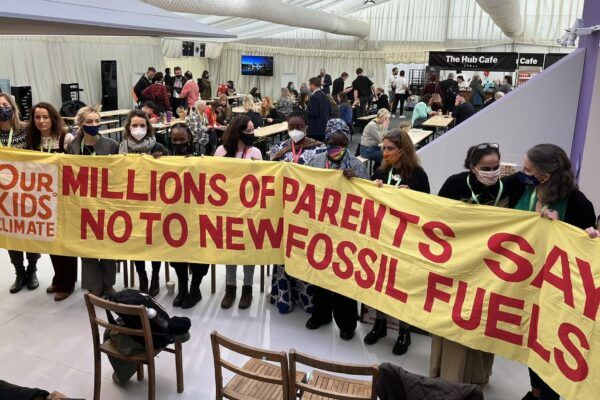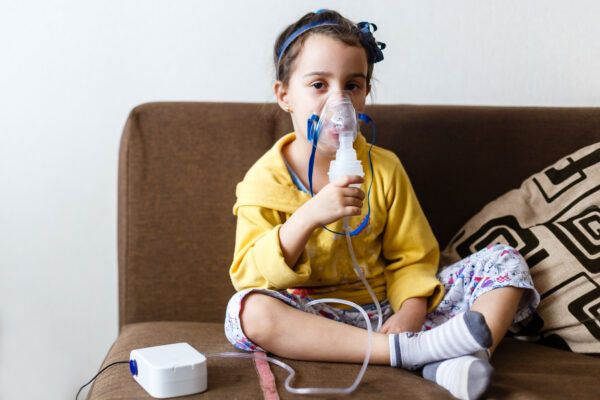Harming the most vulnerable
Children breathe faster than adults and so take in more dirty air. Toddlers and young children in pushchairs are exposed to the brunt of exhaust fumes because they’re lower to the ground.
This early exposure to air pollution can have lifelong effects on a child’s life such as:
- stunted lung growth and brain development delay,
- asthma,
- psychological and behaviour problems,
- anxiety and depression.
Lower-income countries suffer some of the highest levels of air pollution in the world. Poor nutrition and healthcare in these countries can make children even more vulnerable to health problems from dirty air.
Dirty air can disrupt children’s education
Across the world, studies have found unhealthy levels of pollution near schools. Pollution can affect school attendance and cause attention problems.
In heavily polluted countries, schools can close completely as a result of dirty air. Over 400 schools closed for several days in Bangkok in 2019 and 2020 due to severe smog. Traffic exhaust, construction, manufacturing and burning crops caused the harmful pollution levels.
Researchers at the University of Manchester modelled how cleaner air could affect memory. They found that cleaner air could improve a child’s working memory by 6%, equivalent to four extra weeks of learning per year.
Bad air days also prevent children from outdoor activities and playing outside with their friends. They miss out on the physical, social and emotional benefits that these early experiences bring. In the long term, the effect of dirty air on children’s ability to learn and play can impact their future wellbeing and even earning potential.
Cleaner air improves health and wellbeing
To grow, learn and fulfil their potential, children need to breathe clean air. Improving air quality is one of the most effective ways to protect children’s health and wellbeing.
Investing in clean air:
- protects babies from conception,
- prevents childhood illnesses and conditions like asthma that result from dirty air,
- supports children’s healthy development, enabling them to learn and play outside.
In 2021, we partnered with Campaign Collective to raise awareness of air pollution’s harmful impact on children. The campaign, ‘Our Children’s Air’, collected powerful stories from parents around the world. A group of those parents, including Rosamund Adoo-Kissi-Debrah, met the UK’s COP26 President to ask for an end to fossil fuel subsidies. Find out more about Our Children’s Air.
Small investments that protect where children learn and play can return lifelong benefits. A study, funded by the FIA Foundation and Bloomberg, measured the impact of closing streets when children walk to and from school in London. Closing streets resulted in a 23% reduction in harmful nitrogen dioxide. Children breathed cleaner air and less traffic created a safer environment for walking and cycling to school.
The reality is that filthy air is killing millions of people around the world every year. My daughter’s case has helped raise awareness of the devastating impact of air pollution on individuals’ health, as well as their families and communities.
Rosamund Adoo-Kissi-Debrah – Founder, Director and Trustee of the Ella Roberta Family Foundation
Our work on children, babies and air pollution
We believe that everyone should breathe clean air and we work hard with partners to achieve this goal.
In Delhi, our partner Sesame India mobilised children from four neighbourhoods to demand action on clean air. This resulted in a commitment from councillors to tackle air pollution. In Smilyan, Bulgaria, our partners organised a children’s theatre show to promote recycling instead of open waste burning.
UNICEF identified good air quality as critical for children’s development in 2015, yet funding remains sparse. Less than 1% of total official development and foundation funding is spent on tackling air pollution. We need more children-focused foundations to lend their expertise and resources to cleaning up our air.

